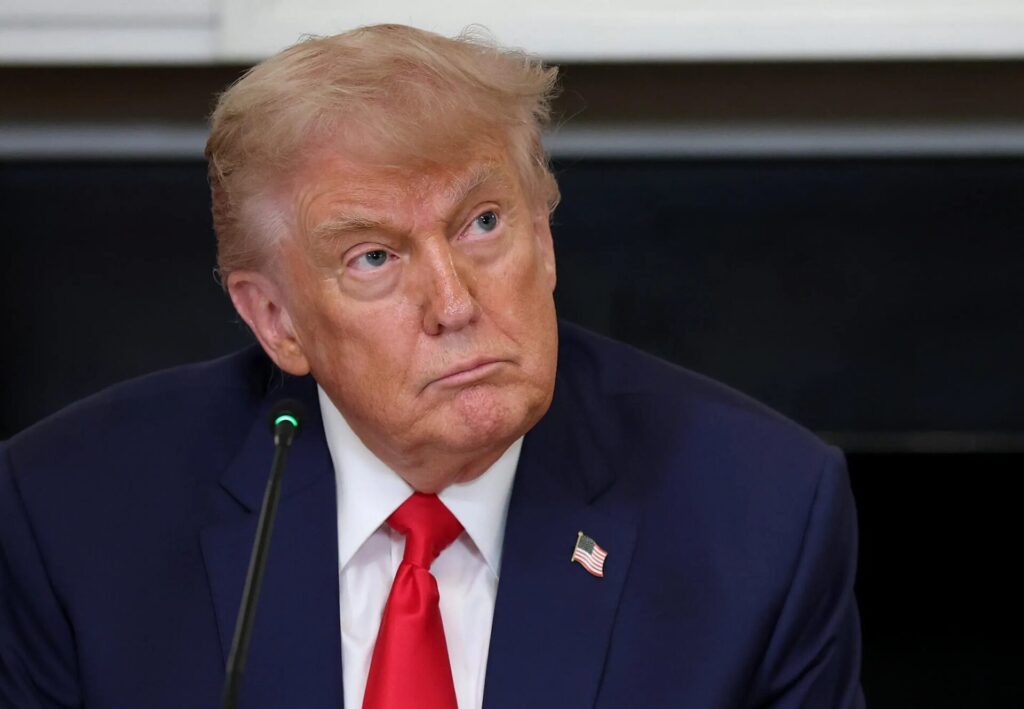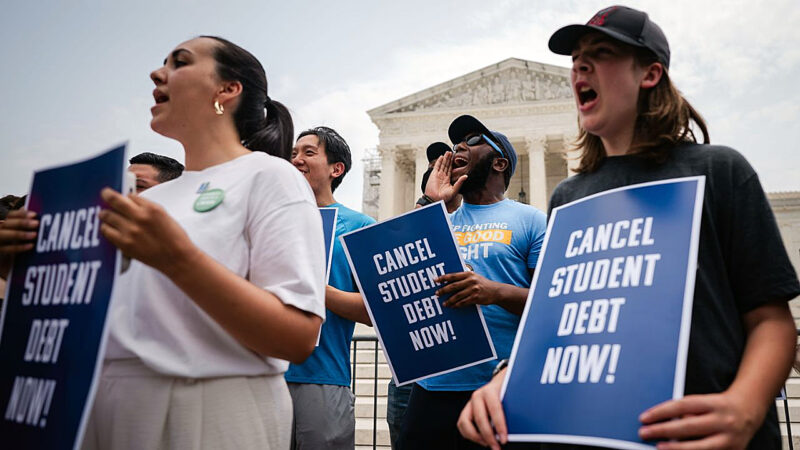Student loan forgiveness is moving forward under a new agreement that protects millions from tax penalties, and it’s a big deal for borrowers who’ve been waiting. On October 20, 2025, the Trump administration reached a settlement to cancel student debt for eligible borrowers without the tax consequences that could have cost thousands of dollars. Trump’s student loan forgiveness deal resolves the question many had been asking about whether Trump stopped student loan payments, as the administration now commits to processing debt cancellation under court supervision. The agreement ensures Trump cancels student loans for those in income-driven repayment programs while also shielding them from the 2026 tax law change that would have treated forgiven debt as income.
Also Read: IRS Direct Deposit Stimulus Rumors: $2000 Payment Claims Debunked
The Trump administration and the AFT reached the settlement in the AFT v. U.S. Department of Education case, and it requires student loan forgiveness for borrowers in income-driven repayment, income-contingent repayment, Pay As You Earn, and Public Service Loan Forgiveness programs. The IRS won’t send forms to borrowers whose loans the government cancels by December 31, 2025, treating the forgiven balances as taxable income, which is huge.
Trump Student Loan Forgiveness And Debt Relief Protect Borrowers From Taxes


What The Deal Includes For Borrowers
The Education Department must process student loan forgiveness applications and reimburse borrowers who made payments after becoming eligible for cancellation. The programs affected include over 2.5 million enrollees right now, and Trump cancels student loans under court supervision with six monthly progress reports the administration must file to ensure compliance. The court included this oversight to make sure the government actually follows through on its commitments.
AFT President Randi Weingarten had this to say:
“For nearly a decade, the AFT has fought for the rights of student loan borrowers to be freed from the shackles of unjust debt—and today, a huge part of that affordability fight was vindicated. This year, we took on the Trump administration when it refused to follow the law and denied borrowers the relief they were owed.”
Weingarten also stated:
“Our agreement means that those borrowers stuck in limbo can either get immediate relief or finally see a light at the end of the tunnel. The AFT will hold the federal government to its word, and we won’t stop fighting until college is affordable and taking out a student loan doesn’t trap millions of Americans in a ruinous and exploitative debt cycle.”
Tax Protection From Student Loan Forgiveness
The tax protection addresses a 2026 change in federal law that will treat canceled student debt as income. Without this agreement, the IRS would have sent unexpected tax bills to borrowers who received student loan forgiveness after questions arose about whether Trump stopped student loan payments. The union said borrowers could have faced steep penalties through no fault of their own, simply because the government delayed processing their applications.
Winston Berkman-Breen, legal director for Protect Borrowers, said:
“This is a tremendous win for borrowers. With today’s filing, borrowers can rest a little easier knowing that they won’t be unjustly hit with a tax bill once their student loans are finally canceled, pursuant to federal law.”
Berkman-Breen also stated:
“The US Department of Education has agreed to follow the law and deliver Congressionally mandated affordable payments and debt relief to hard-working public service workers across the country, and will do so under court supervision. We fully intend to hold them to their word.”
Timeline And Court Oversight
The AFT filed the lawsuit in March 2025 after the administration removed enrollment applications from federal websites and quietly instructed loan servicers to stop processing them. At the time of writing, the court is reviewing the joint status report. This agreement provides student loan forgiveness for borrowers who’ve been in limbo and protects them from tax penalties through December 31, 2025.
Also Read: IRS to Furlough Nearly 50% of Staff Amid Government Shutdown
President Trump’s “Big, Beautiful Bill” will phase out the Income-Contingent Repayment and Pay As You Earn programs by July 1, 2028, which means eligible borrowers need to process their student loan forgiveness before then. The government later resumed accepting applications but hadn’t publicly committed to canceling student debt until the parties reached this settlement, making this a turning point for millions of Americans.





